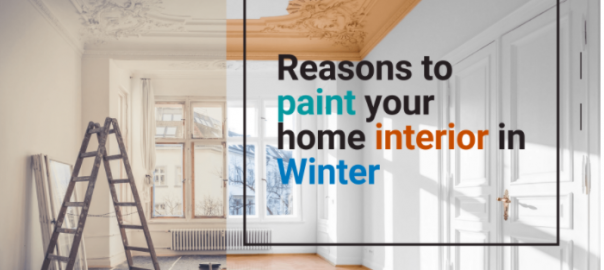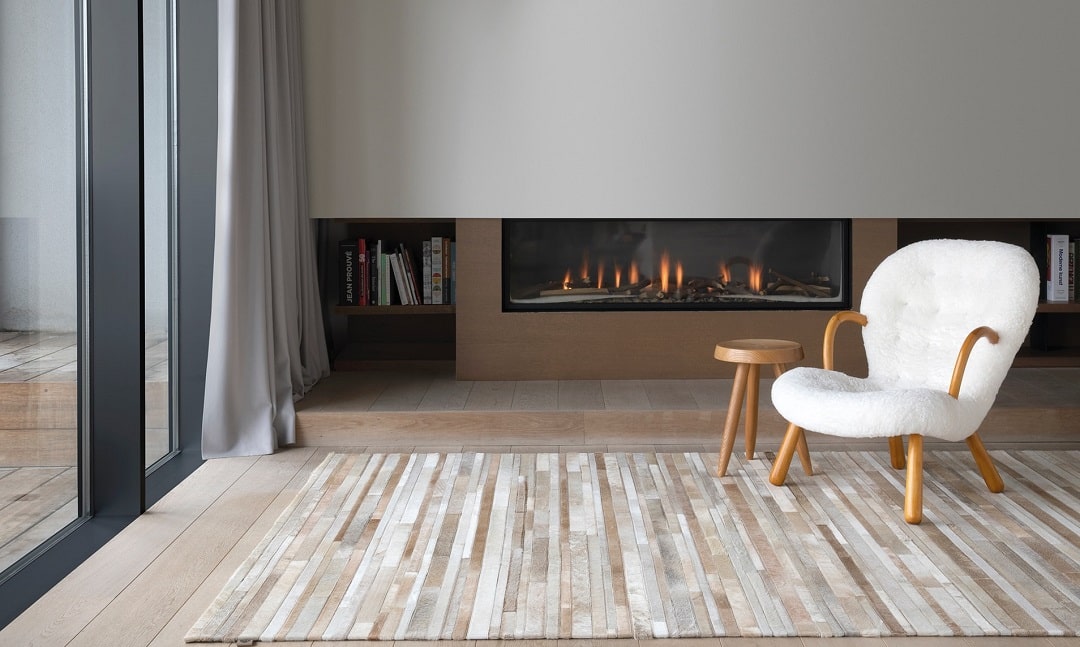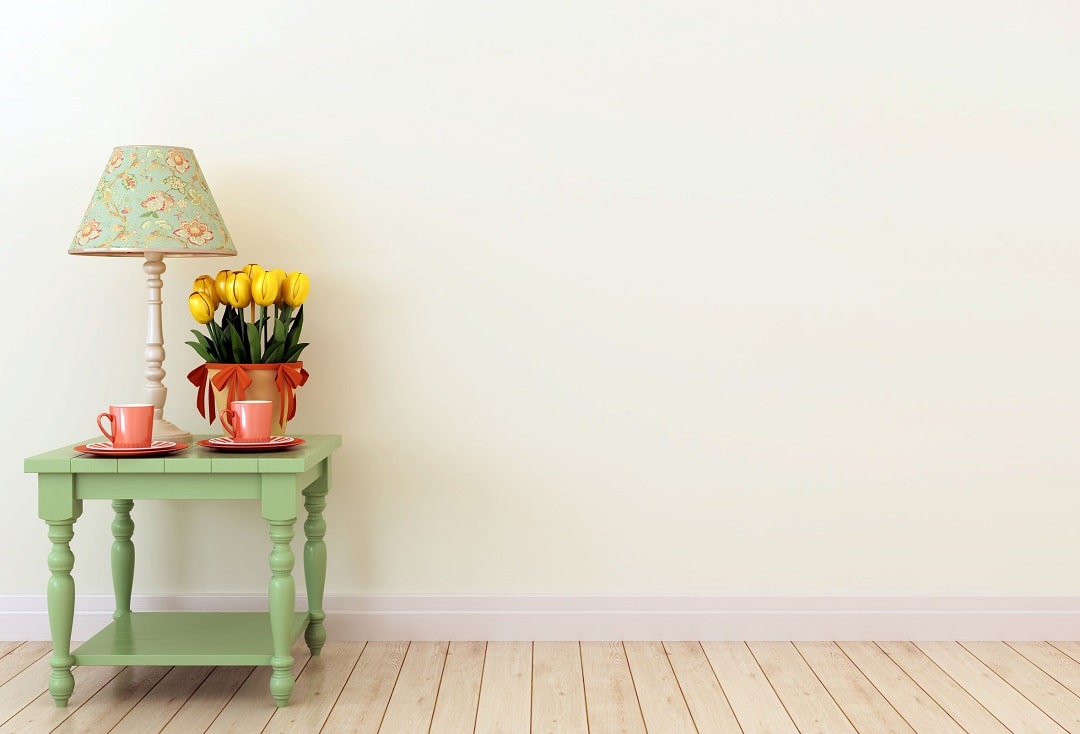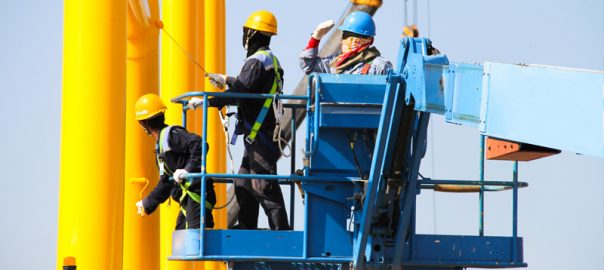In general cases, we often tend to believe that summer is the perfect time to give your house a perfect painting makeover it deserves. But contrary to the popular beliefs, winter happens to be one of the most suitable times for house painting- for multiple reasons. In Detroit, summer is a big red flag for any kind of wall painting projects. During winter, the humidity level is always lower. Lower humidity level means less moisture in the air, quick paint drying time. So, in other words, winter as an “off-season” gives you the benefit of the doubt. Let’s explore some of the reasons what makes winter the perfect season for interior painting.
Cheaper quotes and inexpensive painting projects
During winter, the demand for interior painting services is significantly less compared to any other seasons, all thanks to the common misconception about the seasonal painting. Spring and summer, on the other hand, are high-demand seasons for professional painting services, so painting quotes are fairly on demand.
Hence, winter is a perfect time to give your rooms a complete makeover with a splash of colors, with a cheaper deal. And suppose you have a larger painting project for the professional painters. In that case, the residential painting team may even offer you extra time to paint an additional room completely free of charge!
Fairly consistent weather condition
Before starting your house painting project in winter, checking the local forecast, and scheduling the right time is crucial to avoid painting errors. Besides, the total duration of preparing the surface, painting, drying, and priming will depend on the weather and air temperature as well. But during the winter season, the temperature barely fluctuates too low- which becomes more accessible for indoor painting jobs to be done without significant interruptions. Although for the exterior painting project, it’s better if the weather is sunny. In warmer weather, direct sunlight should be strictly avoided, but for interior setting, painting under the sun since direct sunlight isn’t much of a requirement.
Less humidity in the air
Through the summer months, there are days in which high humidity levels can cause problems for painters, specifically those that are not professionals. This is the case if you’re painting outdoors in Sydney and oftentimes indoors as well. If there is an excessive amount of water vapor in the air, this reduces the paints ability to adhere, making it more difficult to spread evenly. Too much moisture in the air also results in potential straining and adhesion problems. Since moisture in the air is limited and the humidity level is consistently low during winter, it makes painting jobs easier to schedule and even easier to finish! In colder months, you can avoid this if painting indoors, where your walls and ceiling will be conducting heat. In some cases, you may find that paint actually dries more quickly on a cold day compared to a particularly warm day. Overall a perfect painting condition depends on many other considerations like different house painting temperatures which is a must to know.
Interior surface temperature is the only concern.
Wall surface temperature is one of the most important aspects of interior painting during winter. The specified minimum application temperature requirement is associated with not just the air temperature but also the wall surface to be painted. All you need to do is to carefully check if the wall or ceiling surface is warmer or colder than the air. Most often than not, the surface is colder than the air temperature during winter. If the air temperature is over 50°F, but the surface is still cold, consider using a heat gun or hairdresser to warm the surface up.
To compare the temperature difference between surface and air, painting professionals use infrared thermometers to take the guesswork out of a painting. These thermometers also emit an infrared beam to measure the surface temperature of anything you point it at. Hence, to better understand surface temperature, consult with a painting expert or residential painting service.
Faster paint drying time
Contrary to what you may believe, your interior paint job will dry noticeably faster in the winter compared to the summer! Like we mentioned earlier- moisture and humidity in the air play a considerable role in paint drying time. And during winter, the air is cold-crisp, and the moisture level is barely minimum. So instead of evacuating the room with cold air artificially- all you need to do is to check the surface temperature during winter and start your paint job with no hassle.
Note that in order to take advantage of this, you will need to keep your windows open to ventilate the indoor space with cold air. To dismiss the potential risk of toxic fumes and health hazard due to chilled air- don’t forget to get the right wall paints with low to zero VOC.
Perfect season for rejuvenating the house!
No matter how brutally cold and dry winter season could be, it always promises boundless festivities and the approach of tropical harmony. And now that you know all the advantages winter painting can offer- you can take off your blanket and start an exciting house makeover project for the upcoming holiday season! And since you are more likely to be spending more time indoors during winter- you can go ballistic with exciting colour palettes and designs.
And since it’s a slow season for most painting services- the professional painters will be more invested in consulting different color and indoor painting applications with you. So instead of a regular paint job, you can experiment with different textured and patterned painting all-around your house.
More time to enjoy summer!
Last but not least, winter painting and rejuvenation gives you more headspace to make a perfect summer plan. A lot of people choose to repaint individual or multiple rooms in their house throughout the winter because they want to avoid having to take care of the project when they could be enjoying the great weather come to the summertime. Needless to say, it’s a very witty strategy- now that you know all the benefits that come along with winter painting.
If you can manage it, getting the work out of the way is undoubtedly a plus, and given that you’re likely to be spending more time indoors in winter, you can enjoy your newly painted interior a lot more.
Winter- unlike the popular myths, can offer an abundance of time for you to focus on things you’d probably plan or rush to finish during peak seasons like summer. Indoor painting is no exception!
Call Pro Coats Painting LLC for your free estimate 734-652-4202






